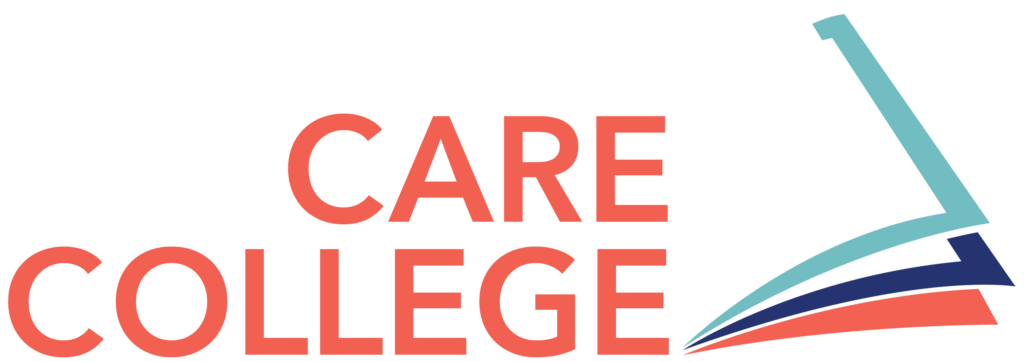Malpractice and Maladministration Policy
Table of Contents
- Purpose
- Definitions
- Scope
- Malpractice
- Maladministration
- Reporting and Investigation
- Consequences and Sanctions
- Appeals Process
- Roles and Responsibilities
- Monitoring and Review
Purpose
This policy outlines Care College’s commitment to maintaining high standards of integrity, honesty, and fairness in all academic and administrative activities. It establishes guidelines to prevent and address malpractice and maladministration, including the misuse of artificial intelligence (AI) in student work, and outlines the processes for detection, investigation, and response.
Definitions
Malpractice
Any action by a learner, staff member, or third party that compromises the integrity of assessments, learning, or administration. This includes plagiarism, cheating, falsification of information, and improper use of AI in assignments.
Maladministration
Any administrative practice or error by staff that results in non-compliance with academic standards or regulatory requirements. Examples include incorrect record-keeping, mishandling learner information, or non-adherence to assessment processes.
Scope
This policy applies to all learners, staff, and external parties involved in the learning, assessment, and administration processes at Care College. It aims to safeguard the college’s reputation and uphold the validity and fairness of academic achievements.
Malpractice
Forms of Malpractice
- Plagiarism: Submitting someone else’s work, ideas, or intellectual property as one’s own without proper acknowledgment.
- AI Misuse: Excessive or undisclosed use of AI in written work, where AI-generated content replaces the student’s original thought, analysis, or synthesis of ideas.
- Cheating: Copying from others, using unauthorised materials, or facilitating dishonest practices in assessments.
- Falsification: Providing false information about qualifications, achievements, or identity.
- Collusion: Unauthorised collaboration with others on an individual assignment or assessment.
AI Detection and Management
Care College is committed to ensuring originality in student work, including the responsible and transparent use of AI tools.
- AI Detection Software: Care College employs AI-detection tools to monitor for unauthorised or excessive AI-generated content in assessments. AI use must be disclosed if it contributes to any part of a submission.
- Review Process: Written work flagged by AI detection software will be manually reviewed by academic staff to verify originality and ensure the student’s personal input is evident.
- Consequences for Misuse: Undisclosed or excessive use of AI will be treated as malpractice. Consequences range from resubmission to more severe disciplinary actions based on the extent of the misuse.
To determine whether a student has plagiarised an assessment task, our current system will allow for a 20% score across RQF qualifications where written assessments are required (this includes RQF optional units). Any scores over this amount will trigger this policy procedure to begin.
Preventive Measures
- Education and Awareness: Students and staff will be regularly educated on the importance of academic integrity and the proper use of AI.
- Assessment Design: Care College will implement assessment methods that encourage critical thinking and reduce opportunities for malpractice.
Maladministration
Forms of Maladministration
- Incorrect Record-Keeping: Failing to maintain accurate records of learner assessments, attendance, or results.
- Non-Adherence to Procedures: Failure to follow established processes for assessments, learner support, or reporting, which may lead to unfair treatment.
- Failure to Report: Not reporting suspected cases of malpractice or breaches of academic integrity in a timely manner.
Preventive Measures
- Training and Support: Staff will receive regular training on accurate record-keeping, adherence to procedures, and the importance of compliance with all regulatory standards.
- Regular Audits: Internal audits will be conducted periodically to identify and correct instances of maladministration, ensuring consistent adherence to processes.
Reporting and Investigation
Reporting Malpractice and Maladministration
All suspected cases of malpractice or maladministration must be reported promptly to the Academic Integrity Officer or a designated member of senior management.
Reports can be made by learners, staff, or external parties, and will be handled confidentially to protect the rights of all involved.
Investigation Procedure
- Initial Review: Upon receiving a report, the Academic Integrity Officer will conduct an initial review to determine the validity of the allegation.
- Formal Investigation: If further investigation is warranted, a formal inquiry will be conducted, involving interviews with relevant parties, review of evidence, and consultation with subject matter experts if needed.
- Outcome and Sanctions: Based on the findings, appropriate actions will be taken, which may include additional training, resubmission of work, disciplinary measures, or notification to relevant authorities.
Consequences and Sanctions
For Malpractice
- Minor Offences: Require resubmission with possible grade penalties and guidance on proper academic practices.
- Major Offences: May lead to more serious disciplinary actions, including academic probation, suspension, or expulsion.
For Maladministration
- Staff Re-Training: Staff found responsible for maladministration will be required to undergo training and may be subject to performance monitoring.
- Policy Revisions: Repeated issues will prompt a review of policies and procedures to mitigate future occurrences.
Appeals Process
Learners or staff members who believe they have been unfairly penalised may submit an appeal within 10 working days of receiving the decision. Appeals will be reviewed by an independent panel to ensure impartiality and fairness.
Roles and Responsibilities
- Academic Integrity Officer: Manages cases of malpractice, ensures policy adherence, and oversees investigations.
- College Management: Ensures staff training on compliance and adherence to policies.
- Learners and Staff: Are responsible for understanding and adhering to the standards of academic integrity and reporting any suspected breaches.
Monitoring and Review
This policy will be reviewed annually to ensure it remains effective, fair, and compliant with legal and educational standards. Feedback from learners and staff will be incorporated into each review.
